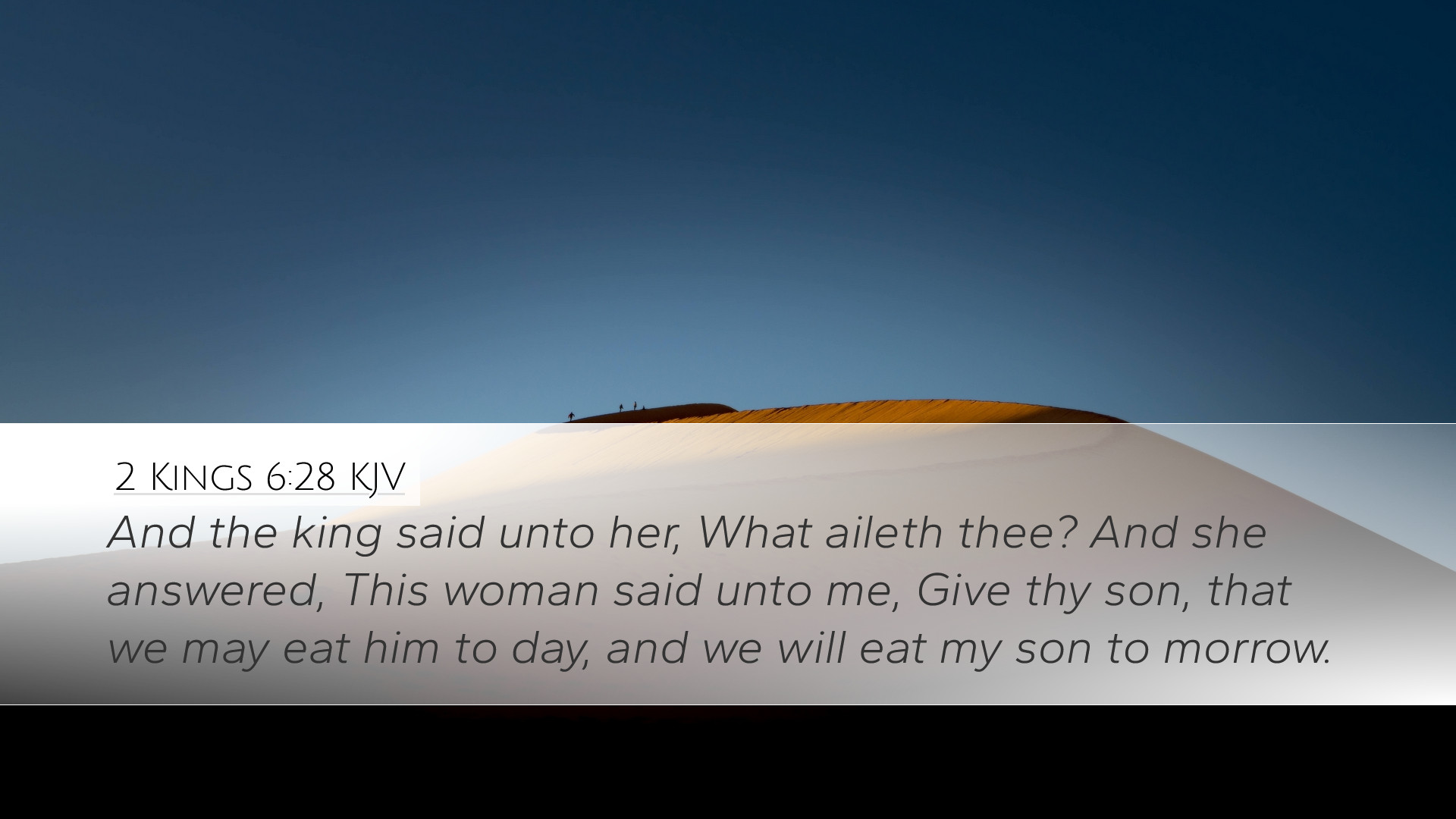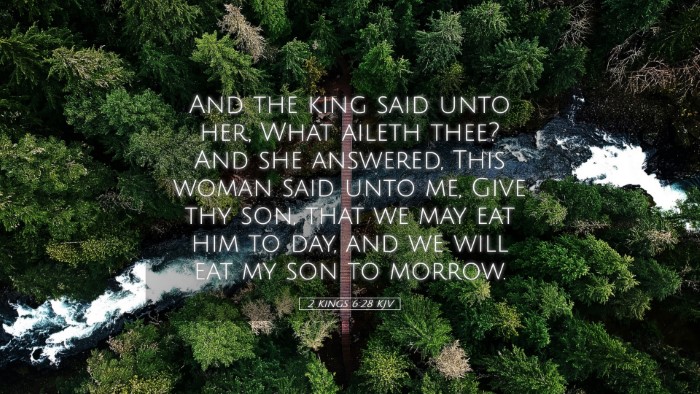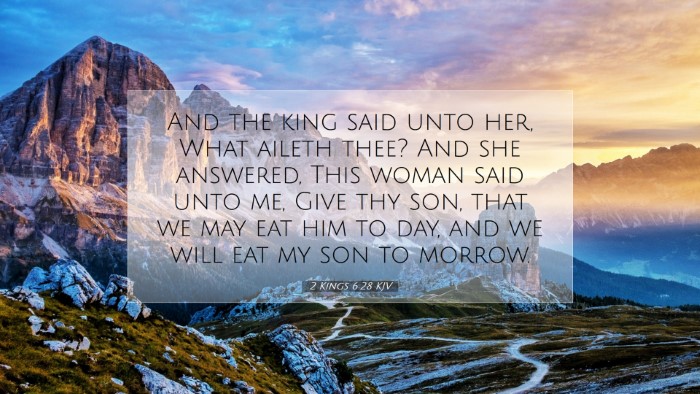Commentary on 2 Kings 6:28
Verse: 2 Kings 6:28 - "And the king said unto her, What aileth thee? And she answered, This woman said unto me, Give thy son, that we may eat him today, and we will eat my son tomorrow."
Contextual Overview
This verse occurs during a time of severe famine in Samaria, as depicted in 2 Kings 6. The situation becomes desperate, and it is in this context that we encounter a discussion between two women, revealing the depths of human desperation and a breakdown of social structures during the siege by Ben-hadad, king of Syria.
Theological Implications
- Desperation and Depravity: This passage illustrates the extreme measures people take when pushed to the brink of survival. It reflects the devastating consequences of sin and how far humanity can sink when cut off from divine sustenance.
- The Ethics of Survival: The request made by one woman to the other raises profound moral questions. The willingness to resort to cannibalism speaks to the degradation of societal norms and the loss of compassion when survival is at stake.
- God’s Presence in Crisis: Even in the direst of circumstances, God’s watchfulness and eventual deliverance are themes that resonate throughout the narrative and remind believers of hope in hopelessness.
Insights from Commentaries
Matthew Henry
Matthew Henry, in his commentary, highlights the tragic irony present in this narrative. He notes that it is a stark representation of the consequences of forsaking God’s provision. The king's perplexity reflects his dismay over the moral decay of his subjects. Henry points out that such actions reveal not just the physical famine but a spiritual one as well, where faith diminishes in the face of suffering.
Albert Barnes
Albert Barnes expounds on the historical context, noting that this famine was a fulfillment of prophetic warnings that came as a result of Israel's disobedience. He emphasizes how dire circumstances lead to desperation, resulting in tragic choices that people make when they feel entirely powerless. Barnes encourages readers to reflect on the depths of human suffering and the need for divine intervention in such moments.
Adam Clarke
Adam Clarke offers additional layers of interpretation, focusing on the psychological and emotional turmoil experienced by the characters in this narrative. Clarke suggests that the king’s inquiry and the women’s exchange are emblematic of the human condition when faced with extreme trials. He also posits that the mention of cannibalism is meant to evoke horror and illustrate the severity of the crisis, urging readers to recognize the dangers of turning away from God during times of trouble.
Lessons for Modern Believers
- Faith During Famine: Believers are reminded of the importance of maintaining faith, especially in our dark moments when circumstances challenge our hope.
- Community and Compassion: The story urges modern societies to cultivate communities that respond with love and support instead of aggression and betrayal, especially in times of crisis.
- Awareness of Spiritual Drought: Just as physical famine can lead to moral decay, spiritual neglect can lead to dire outcomes; thus, regular reflection and renewal of faith are crucial.
Conclusion
2 Kings 6:28 serves as a grim reminder of the potential outcomes when people turn away from God in times of trouble. The insights provided by Matthew Henry, Albert Barnes, and Adam Clarke emphasize the need for compassion, faith, and the acknowledgment of God’s presence even during the harshest trials. As believers and scholars reflect on this passage, we are called to uphold the values of love and faithfulness, serving as vessels of hope in a world that often mirrors the desperation seen in this narrative.


